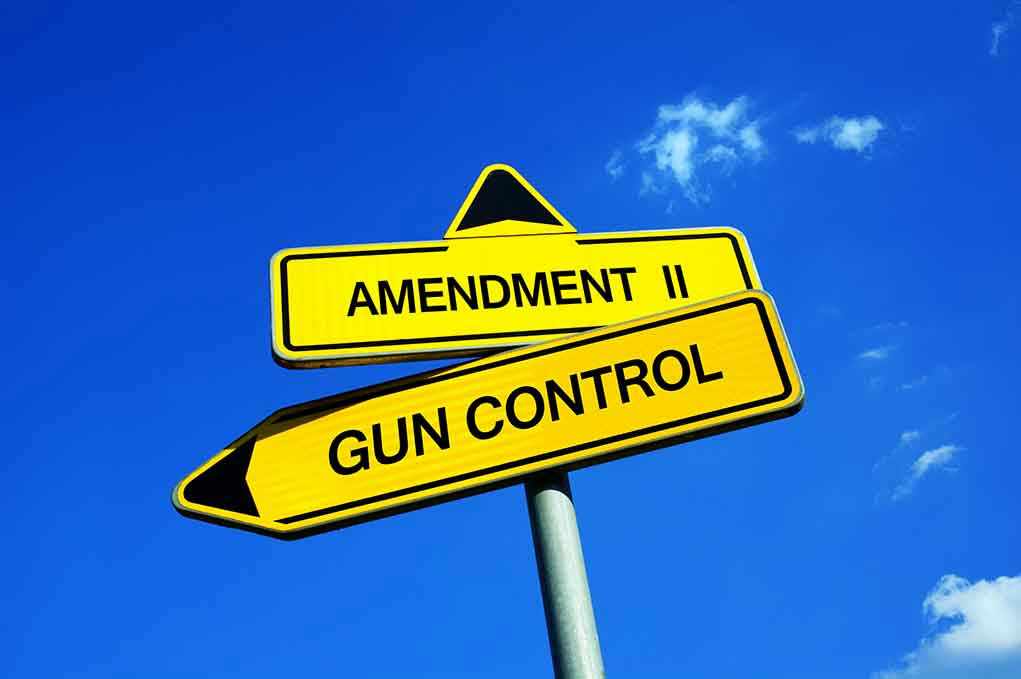
Legal fireworks are erupting as a sweeping lawsuit aims to gut the infamous National Firearms Act, a law that’s harassed law-abiding gun owners for generations, and now—thanks to recent changes—may have finally lost its last constitutional fig leaf.
At a Glance
- The National Firearms Act (NFA) of 1934 faces a major legal challenge after changes to its tax requirements undermine its constitutional basis.
- The NFA, originally justified as a tax to skirt around the Second Amendment, could now be on the brink of collapse if courts rule it unconstitutional.
- Gun rights advocates and constitutional scholars argue the NFA’s regulatory overreach has always been an affront to American freedoms.
- The case could reshape federal gun laws, finally putting an end to decades of red tape on suppressors, short-barreled rifles, and more.
A Law Born of Prohibition—and Government Panic
Back in 1934, Congress scrambled to look tough on crime after the Prohibition era turned ordinary Americans into criminals and bootleggers into celebrities. Their solution? The National Firearms Act—a law that slapped a $200 tax (the equivalent of more than $4,000 today) on machine guns, short-barreled rifles, shotguns, and suppressors, effectively pricing them out of reach for most Americans. The justification was simple: Congress couldn’t outright ban these guns without trampling the Second Amendment, so they dressed it up as a tax to dodge constitutional scrutiny. The result was a paperwork nightmare for gun owners and a windfall of federal power for the Bureau of Alcohol, Tobacco, Firearms and Explosives (ATF) that would last generations. Politicians crowed about public safety, but everyone knew the real target was the law-abiding American who just wanted to exercise their rights without being treated like a criminal.
Fast-forward to 2025. The tax justification for the NFA is crumbling, as recent regulatory changes have stripped away the original monetary requirements. Suddenly, the law has lost the very foundation that allowed it to survive court challenges for nearly a century. The ATF, Congress, and gun control lobbyists are scrambling to defend a law whose legal underpinnings may be as empty as their promises of “common sense” regulation. Meanwhile, gun owners and dealers are left in limbo, staring down the barrel of legal uncertainty and wondering if the era of federal harassment is finally coming to an end.
Legal Storm Clouds Over the NFA
The new lawsuit, now making headlines as “One Big Beautiful Lawsuit,” is taking direct aim at the NFA’s Achilles’ heel: its claim to constitutional legitimacy as a tax. Legal scholars have pointed out for years that the only reason the NFA survived was because it was technically a revenue measure. Now, with the tax neutered or outright removed, the law has been exposed as a naked gun grab masquerading as taxation. Experts say this change could make the NFA ripe for a constitutional challenge unlike any it has faced before. Gun rights groups, emboldened by President Trump’s return to the White House and a wave of pro-freedom judicial appointments, are lining up to support the effort. After decades of watching the ATF torment citizens over paperwork errors and technicalities, many in the gun community are ready for a full-scale legal reckoning. The stakes could not be higher: if the courts strike down the NFA, the entire regulatory regime for suppressors, short-barreled rifles and shotguns, and other so-called “dangerous weapons” could collapse overnight.
The ATF, for its part, isn’t going down without a fight. Bureaucrats and gun control advocates are warning of chaos if the NFA falls, painting doomsday scenarios where gangsters and criminals run wild with unrestricted firepower—a tired argument that ignores the reality that criminals, by definition, don’t follow gun laws. For years, law-abiding citizens have jumped through hoops, paid exorbitant fees, and waited months or even years for the privilege of exercising their rights. Now, with the NFA on the ropes, those same citizens are demanding answers and demanding justice. The constitutional stakes are clear: will the courts finally recognize that the government has no right to regulate away a fundamental liberty simply by calling it a tax?
What’s Next for Gun Owners and the Constitution?
If the lawsuit succeeds, the immediate impact could be seismic. Dealers and manufacturers would no longer face the threat of federal prosecution for selling items arbitrarily demonized by the NFA. Gun owners could breathe easier, knowing that a paperwork mistake won’t land them in prison. The firearms industry, long stifled by red tape and government overreach, could see a renaissance as innovation and free enterprise return to the marketplace. Law enforcement agencies, freed from the burden of enforcing an outdated and convoluted law, could refocus on real crime instead of hunting down technical violators. Of course, the anti-gun lobby is already sounding alarm bells, predicting a surge in violence and mayhem. But history is clear: responsible citizens are not the problem, and more gun laws have never made anyone safer.
Politically, this case marks a turning point. For decades, the left has used the NFA as a bludgeon against the Constitution, all while pretending it was just about “reasonable restrictions.” Now, the mask is off. The legal battle over the NFA isn’t just about taxes or technicalities—it’s about whether the federal government can use regulatory sleight of hand to erode core American freedoms. With the Trump administration signaling support for gun rights and a Supreme Court that looks more favorably on the Second Amendment than ever before, there’s real hope the days of federal gun control might be numbered. For millions of Americans tired of being treated like suspects in their own country, that day can’t come soon enough.
Sources:
National Firearms Act of 1934 – The Congress Project
The National Firearms Act: Origins and Impact – NFA Lawyers
A Brief History of Firearms Law – Violence Policy Center
National Firearms Act – Wikipedia




